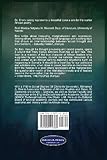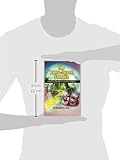Editor's Introduction
In Mohamed Eno’s poems, the world of myth and folk tales interact with the "real" world, so that each seems to breach the boundaries of the other: the effect is disturbing, and thought-provoking. Drawing on representations and stories of evil in southern Somalia, Eno creates a world which seems to come without the insulation that myths and tales provide, without the reassurance that there is a storyteller in control. Both poems offer narratives that do not resolve themselves, or that end only in a reduplication of the crisis that sets the narrative in motion: the goose that appears in a graveyard prefigures a vicious king, who has already come: the story is already over, with us, in it. A leader’s burial is pre-empted by a half-human/half-crocodile, who stands watch over the corpse, until the corpse too turns into a hybrid human/animal, as the story continues to replicate itself. Narrative seems to fall apart in these poems, or to obliterate it. It is intolerance that seems to undo old stories, and turn them into hybrids that ward off interpretation, that leave us in the uninterpretable now.
--Noam Scheindlin
A GOOSE AT THE GRAVEYARD
The senior clergymen ordered
Seven nights of vigil
In all centres of worship
When wood-gathering women and children
were struck by the doggone sight
Of a goose at the graveyard
Placing three bodies horizontal
Against three others vertical
On the branches of a qurac tree.
Around them, unheavenly embers
Were blazing out of the triple mouths
Of Goat-sized deadly desert scorpions.
In our folktale the scene portended
The arrival of a vicious ruler
With a large tongue and tail;
His army would ride on pillaged horses
From whereupon they would slay
The entire male in the land
For the king to appropriate the women
And the army to despoil the livestock.
But our traditional historian explained:
That king had already come and gone
After having the devil’s rituals
In his brothers’ bloodbath and
That of lepers, and albinos from the sea.
His unfamiliar ghost like a goose
Visits once in a while our graveyards
Whenever God’s angels chase him
From the environs of Paradise
For the atrocities he committed
Against a pious leader too tall
Whose bare bones are resting
In a home dubbed Fountain-view
Very popular in the Maay-land.
HALF-HUMAN HALF-HEIFER
Before they put him to rest
A half-human she crocodile
Was waiting in the burial place
Of the deceased leader
From One-Hero-Nation
They pleaded with her
But she wouldn’t listen
Till she revealed the motive:
For what he did to the females
During his ruthless leadership
And for the illegitimate offspring
He fathered in the course;
I am neither human nor animal
But a revolutionary curse
Living in his wicked spirit
Until he meets justice
For the lives he perished.
Then in a short while
A heavy downpour of blood covered the land
His harrowing disciples down on their knees
Horses with human faces galloping
Hastily from every horizon
Awe, despair, fear, hullabaloo
Loud supplications for safety
Prayers, vigil, more zikr
The following morning
The body still lays untouched
But awkwardly transfigured
Into half-human, half-heifer.
Mohamed A. Eno is a poet, writer, and essayist. He is the author of the collections Corpses on the Menu: Blood, Bullets, and Bones (Outskirts Press), and Guilt of Otherness (Poems) (Adonis & Abbey Publishers). He is a holder of PhD in Social Studies, St Clements University, Dean and Associate Professor of African Studies at St Clements University Somalia, as well as Senior Faculty & Researcher in the English Department (Academic Section) of ADNOC Technical Institute, Abu Dhabi, UAE. He is co-editor of The Journal of Somali Studies and member of the editorial board of several academic journals. His research interests are in both the Social Sciences and the Humanities. The above two poems are from his new volume, Vertical Articulation.
Photograph: Bob Sprankle / art.bobsprankle.com



